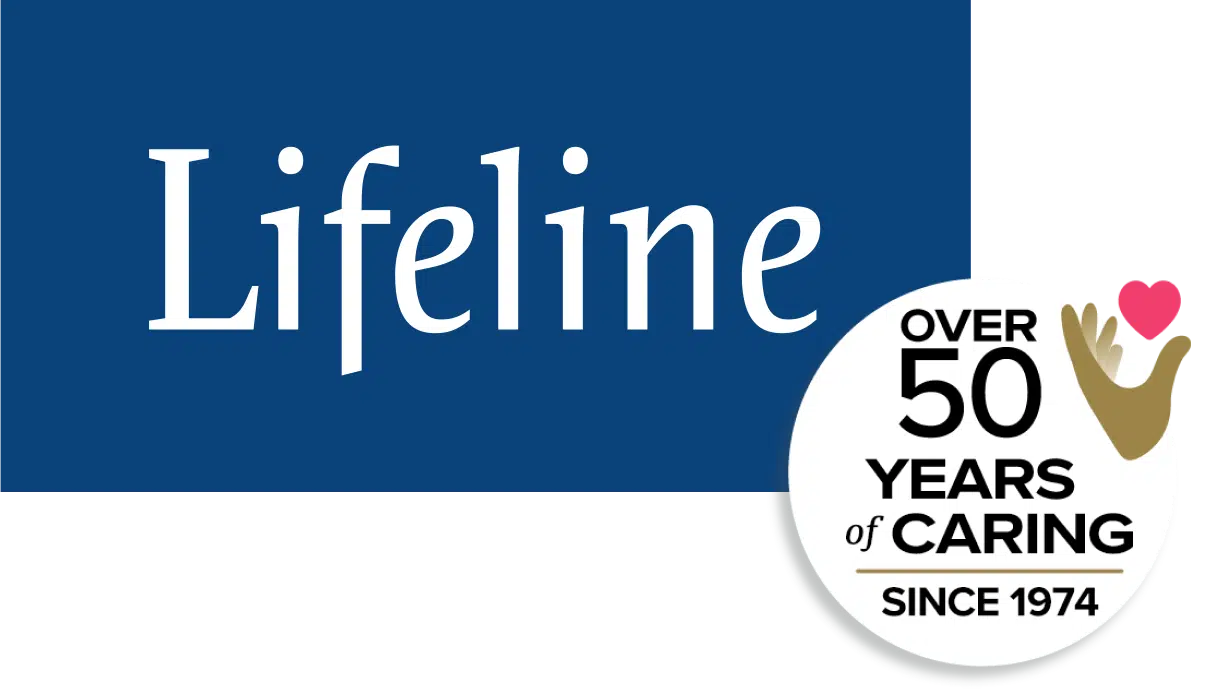Communicating effectively with healthcare providers is vital for caregivers. It ensures that your loved one receives the best possible treatment and support. However, this level of communication is often easier in theory than in practice. In this post, we’ll explore various approaches to how you can talk to doctors and healthcare providers about your loved one’s well-being.
While acting as a crucial bridge between the symptoms you see and medical diagnoses, you must balance the needs of your loved one with the demands related to improved health outcome recommendations from doctors and specialists. Let’s dive in on the best ways to do so:
Why Effective Communication Matters
Good communication helps in understanding medical conditions, managing treatments, and making informed decisions. It builds trust and cooperation between caregivers and healthcare providers, leading to better health outcomes and a more personalized care plan.
Preparing for Healthcare Visits
Proper preparation can make healthcare visits more productive and less stressful. By gathering necessary information and planning ahead, caregivers can help ensure that the visit goes smoothly and all important topics are addressed.
Organizing Medical Information
Before any healthcare visit, organizing medical information is essential. Collect all relevant medical records, including previous diagnoses, medications, and any recent test results. Having a comprehensive medical history readily available can help the healthcare provider make informed decisions and avoid unnecessary tests or procedures.
Making a List of Questions
Creating a list of questions before the visit can ensure that all concerns are addressed. Start with the most pressing issues and include questions about symptoms, treatment options, and any lifestyle changes that might be necessary. This approach ensures that you don’t forget to ask important questions during the consultation.
Questions to Consider:
Symptoms and Diagnosis:
- What might be causing these symptoms?
- Are there any other symptoms we should watch for?
- What tests will be needed to diagnose the condition?
- How long will it take to get the test results?
Treatment Options:
- What are the available treatment options?
- What are the benefits and risks of each treatment option?
- How long will the treatment take?
- Are there any alternative treatments we should consider?
Medications:
- What medications will be prescribed?
- What are the potential side effects of these medications?
- How should the medications be taken (time of day, with food, etc.)?
- Are there any interactions with current medications or supplements?
Lifestyle and Diet:
- Are there any dietary restrictions we should follow?
- What lifestyle changes are recommended?
- Can my loved one continue with regular exercise routines?
- Are there any activities that should be avoided?
Follow-Up and Monitoring:
- When should we schedule the next appointment?
- What symptoms or changes should prompt an immediate visit?
- How will the progress of the treatment be monitored?
- What should we do if the symptoms worsen or don’t improve?
Insurance and Costs:
- Will this treatment be covered by insurance?
- Are there any out-of-pocket costs we should be aware of?
- Are there less expensive alternatives that are equally effective?
- Can you provide an estimate of the overall cost of treatment?
General Care:
- What should we do to ensure comfort?
- Are there any support resources or groups available?
- How can we contact you or your office in case of an emergency?
- Are there any educational materials or websites you recommend for more information?
Understanding Insurance and Financial Aspects
Understanding the financial aspects of healthcare is crucial. Ensure to check what your insurance covers and be aware of any out-of-pocket expenses. Knowing this information ahead of time can prevent financial surprises and allow you to focus on the health and well-being of your loved one.
During the Healthcare Visit
The actual healthcare visit is a critical time for communication. This is when caregivers have the opportunity to present information, ask questions, and receive instructions that will guide future care.
Clear and Compassionate Communication
During the visit, it’s important to communicate clearly and compassionately. Describe symptoms accurately and provide a complete picture of your loved one’s health status. Avoid using medical jargon unless you are sure of its meaning. Clear communication helps the provider understand the situation better and provide appropriate care.
Active Listening
Active listening is a key component of effective communication. Pay close attention to what the healthcare provider says and make notes if necessary. This will help you remember important details and instructions. Active listening also shows respect and helps build a positive relationship with the provider.
Asking the Right Questions
Asking the right questions is crucial during a healthcare visit. Questions about treatment options, side effects, and the expected course of illness are essential. Don’t hesitate to ask for clarification if something is unclear. Understanding the answers to these questions can help in making informed decisions about care.
After the Healthcare Visit
After the visit, caregivers have important tasks to ensure that the care plan is followed correctly and that any necessary follow-ups are arranged.
Reviewing and Understanding Instructions
Take the time to review and understand the instructions given by the healthcare provider. This includes medication schedules, dietary recommendations, and follow-up appointments. If anything is unclear, don’t hesitate to contact the provider for clarification.
Keeping an Updated Medical Record
Keeping an updated medical record is vital. Record any new diagnoses, medications, and treatment plans. This information is important for future healthcare visits and helps ensure continuity of care. An organized medical record can also be useful in emergencies when quick access to health information is needed.
Communicating with Specialists
When dealing with multiple healthcare providers, especially specialists, coordination and clear communication become even more critical.
Coordinating Care Among Multiple Providers
When multiple specialists are involved in your loved one’s care, coordination is key. Ensure that all providers are aware of each other’s involvement and that there is a clear plan for communication. Sharing medical records and treatment plans among providers can prevent conflicts and ensure that care is cohesive and comprehensive.
Understanding Specialist Roles
Understanding the roles of different specialists can help in effective communication. Each specialist may focus on a specific aspect of your loved one’s health. Knowing who to contact for various issues can save time and ensure that the right questions are directed to the right provider.
Addressing Communication Challenges
Communication challenges can arise for various reasons, including language barriers, health literacy issues, and emotional factors. Addressing these challenges proactively is essential for effective healthcare communication.
Language Barriers
Language barriers can significantly hinder effective communication. If you or your loved one is not fluent in the language of the healthcare provider, consider using professional interpretation services. Clear communication is crucial for accurate diagnosis and treatment, and overcoming language barriers is an important step in achieving this.
Health Literacy
Health literacy refers to the ability to understand and use health information. Not all patients or caregivers have the same level of health literacy. Healthcare providers should use simple language and visual aids when necessary to ensure that instructions are understood. As a caregiver, don’t hesitate to ask for explanations in simpler terms if needed.
Emotional Barriers
Emotional barriers, such as fear or anxiety, can also impact communication. Acknowledge these emotions and try to address them before the visit. If your loved one is anxious, a calm and reassuring presence can help. Open communication about fears and concerns can make the healthcare visit more productive.
Tips for Remote Communication
Remote communication, including telehealth and electronic communication, has become more prevalent and offers unique opportunities and challenges for caregivers.
Telehealth Visits
Telehealth visits have become increasingly common. To make the most of these visits, ensure that you have a reliable internet connection and a quiet, private space for the consultation. Test your technology beforehand and have all the necessary medical information at hand. Clear and concise communication is just as important in a virtual setting as it is in person.
Email and Phone Communication
Email and phone communication can be effective for follow-ups and minor concerns. When using these methods, be clear and concise. For emails, provide all necessary information in a single message to avoid back-and-forth exchanges. For phone calls, prepare a list of questions or points to discuss beforehand to ensure nothing is overlooked.
Building a Strong Relationship with Healthcare Providers
Building a strong, ongoing relationship with healthcare providers can significantly enhance the quality of care. This relationship should be based on mutual respect and regular, open communication.
Mutual Respect and Trust
Building a strong relationship with healthcare providers is based on mutual respect and trust. Respect the provider’s expertise and time, and expect the same in return. Trust is built through consistent, open, and honest communication. A strong relationship with healthcare providers can lead to better care and more positive health outcomes.
Regular Communication
Regular communication with healthcare providers is important for ongoing care. Schedule regular check-ins, even if just by phone or email, to discuss any new developments or concerns. Keeping an open line of communication ensures that any issues can be addressed promptly and that the care plan remains effective.
Final Thoughts and Next Steps
Effective communication with healthcare providers is a cornerstone of quality care. As a caregiver, being prepared, clear, and proactive can make a significant difference in the health and well-being of your loved one. Part of supporting their well-being also includes identifying and talking about everyday devices that can help them, especially if you are a long-distance caregiver. For more information on Lifeline Canada’s range of products and how they can support your loved one, connect with us.
What You Should Do Now:
Here are 5 ways we can help you or your loved one live safer and more independently at home as long as possible:
- Get our latest tips, tools and resources straight to your inbox. Sign up for our monthly newsletter.
- Not sure if the time is right for a medical alert service? Take this quick assessment to find out.
- If you would like to learn how to live a healthier and safer lifestyle, go to our blog or visit our resources section, where you can read and download guides.
- Wondering which medical alert system company is the best for your needs? We’ve put together a guide comparing the best medical alert systems for you.





